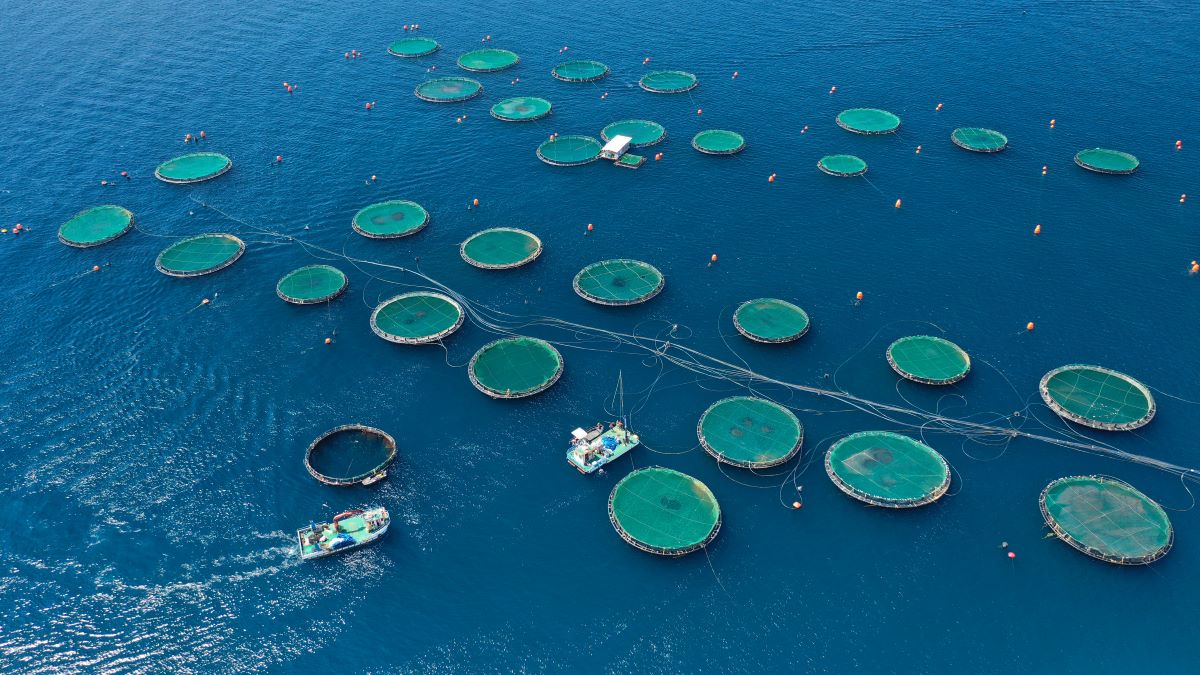From food and energy to transport and innovation, the $2.2 trillion ocean economy anchors global prosperity. But climate shocks, policy fragmentation and shifting trade dynamics threaten its future.
© Shutterstock/Aerial-motion | A fish farming facility raising sea bass and sea bream.
The latest Global Trade Update from UN Trade and Development (UNCTAD) examines the ocean economy – a vital driver of global trade now under growing pressure from environmental and geopolitical shocks.
New analysis reveals that ocean-based sectors such as shipping, tourism, fisheries, and marine energy accounted for 7% of global trade in 2023 – with a combined value exceeding $2.2 trillion.
An anchor of global prosperity under threat
From food and energy to transport and innovation, the ocean economy anchors global prosperity. But climate stress, policy fragmentation and shifting trade dynamics are threatening future gains.
With the 3rd UN Ocean Conference (UNOC3) approaching, the June edition of the Global Trade Update calls for urgent action – stronger rules, smarter infrastructure and resilient cooperation to sustain ocean-driven prosperity.
Not a niche market
The ocean economy is not a niche. It powers supply chains, supports jobs and food systems, and drives innovation worldwide. Amid rising tariffs and climate disruption, keeping ocean trade flowing sustainably is critical to global development.
Key takeaways
- The ocean economy is globally significant. In 2023, ocean trade in goods and services surpassed $2.2 trillion – or 7% of world trade. Services such as shipping and tourism recovered more quickly than goods from pandemic-era lows, reflecting renewed global demand.
- Environmental pressures are intensifying. Sea level rise, plastic pollution, and biodiversity loss continue to impact port infrastructure, marine transport, and coastal communities – especially in vulnerable economies.
- Trade fragmentation is a growing threat. New tariffs risk disrupting maritime supply chains and diverting investment from sustainable ocean sectors.
- Policy reform must lead. UNCTAD urges action to modernize marine infrastructure, end subsidies that harm ocean ecosystems, close legal loopholes in open waters, and enable fairer trade between developing countries.



